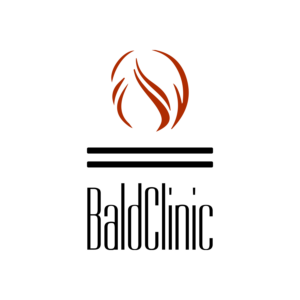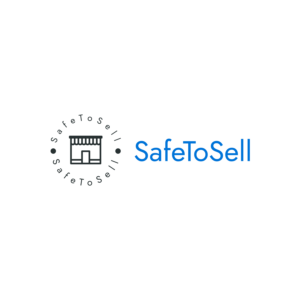
- Automotive, Beauty, Blogs, Business, E-commerce, Education, Entertainment, Finance, Food, Health, Home, Lifestyle, Non-profit, Parenting, Real Estate, Services, Sports, Technology, Travel, Wedding
- 25 Apr 2023
- user
Leveraging Local Audience with Location-Specific Domain Names
In today’s digital age, local businesses can greatly benefit from having a strong online presence to attract and engage their local audience. One crucial element of establishing an online presence is choosing the right domain name, as it can play a significant role in targeting local customers and optimizing search engine rankings. In this article, we will discuss domain name strategies for local businesses, including tips for incorporating location-specific keywords and extensions in domain names.
Include Location-Specific Keywords in Your Domain Name
One effective strategy for local businesses is to include location-specific keywords in their domain names. Location-specific keywords are words or phrases that relate to the geographical area where your business operates. For example, if you have a bakery in New York City, you could consider including keywords such as “NYC,” “New York,” “Big Apple,” or “Manhattan” in your domain name.
Including location-specific keywords in your domain name can have several benefits. First, it can help improve your website’s search engine optimization (SEO) efforts, as search engines often use keywords in domain names as a relevancy signal for local search results. This means that having location-specific keywords in your domain name can increase the likelihood of your website ranking higher in local search results when users search for products or services in your area.
Second, including location-specific keywords in your domain name can also make it clear to users that your business is local and relevant to their area. It can help establish a local identity and build trust with your target audience, as users are more likely to trust businesses that are associated with their local community. Additionally, having a domain name that includes location-specific keywords can make it easier for users to remember and type in your website address, which can lead to higher direct traffic and better user experience.
Consider Location-Specific Domain Name Extensions
Another effective strategy for local businesses is to consider using location-specific domain name extensions. Domain name extensions are the letters that come after the dot in a web address, such as .com, .org, or .net. In recent years, there has been an increase in the availability of location-specific domain name extensions, such as .nyc, .london, .sydney, or .berlin, which are associated with specific cities or regions.
Using a location-specific domain name extension can have several benefits for local businesses. First, it can help your website rank higher in local search results, as search engines may use domain name extensions as a relevancy signal for local searches. For example, if you have a business in London and you use a .london domain name extension, it can signal to search engines that your website is relevant to users in London, potentially leading to higher search rankings for local queries.
Second, using a location-specific domain name extension can also help establish your business as a local entity and build trust with your local audience. It can make it clear to users that your business is specifically targeted towards their area and that you understand the local market and community. This can help you connect with your local audience on a deeper level and differentiate yourself from competitors.
Keep Your Domain Name Short, Memorable, and Easy to Spell
When choosing a domain name for your local business, it’s essential to keep it short, memorable, and easy to spell. A domain name that is concise and easy to remember can help users recall and type in your website address accurately, leading to higher direct traffic and better user experience. Avoid using complex or lengthy domain names that can be easily misspelled or forgotten by users.
Avoid Hyphens and Numbers in Your Domain Name
It’s also important to avoid using hyphens and numbers in your domain name. These can make your domain name more complex and harder to remember. Additionally, hyphens and numbers can be easily misunderstood when verbally shared, leading to confusion and potential loss of traffic to your website.
Conduct Keyword Research
Before finalizing your domain name, it’s essential to conduct keyword research to identify relevant and high-performing keywords related to your local business and location. Keyword research can help you identify popular search terms that users in your area are using to search for products or services similar to yours. Incorporating these keywords in your domain name can help improve your website’s SEO efforts and increase its visibility in local search results.
Consider Branding and Consistency
When choosing a domain name for your local business, it’s also crucial to consider branding and consistency. Your domain name should align with your overall branding strategy, including your business name, logo, and other brand elements. Consistency in your branding across all online and offline channels, including your domain name, can help reinforce your brand identity and make it easier for users to recognize and remember your business.
Think Long-Term
When selecting a domain name for your local business, it’s important to think long-term and consider your business goals and growth plans. Your domain name is a significant part of your online identity and should be able to withstand the test of time. Avoid choosing a domain name that is too narrowly focused on your current location, as it may limit your business expansion plans in the future. Instead, opt for a domain name that is versatile and can accommodate potential changes in your business, such as expansion to other locations or diversification of services.
Protect Your Brand
Once you have chosen a domain name for your local business, it’s essential to take steps to protect your brand. Register your domain name with a reputable domain registrar and consider securing variations of your domain name, including common misspellings, to prevent others from registering similar domain names that could potentially divert traffic from your website. Additionally, consider trademarking your business name and domain name to further protect your brand from infringement.
In conclusion, domain name strategies for local businesses can play a crucial role in targeting local customers and optimizing search engine rankings. By incorporating location-specific keywords and extensions in your domain name, keeping it short, memorable, and easy to spell, conducting keyword research, considering branding and consistency, thinking long-term, and protecting your brand, you can create a strong online presence and connect with your local audience effectively. A well-thought-out domain name can be a valuable asset for your local business and contribute to its overall success in the digital world.
Post Views: 143



















